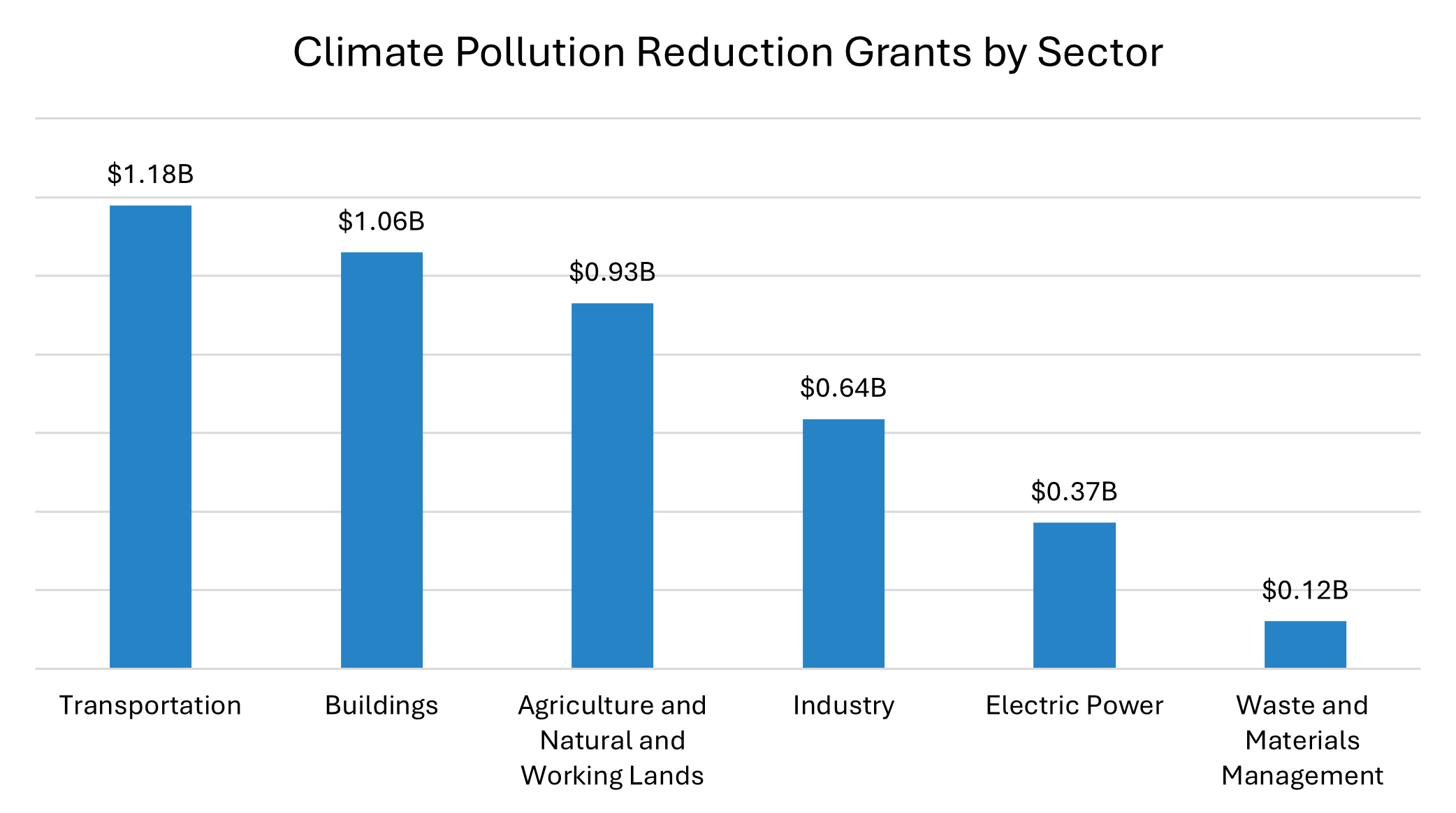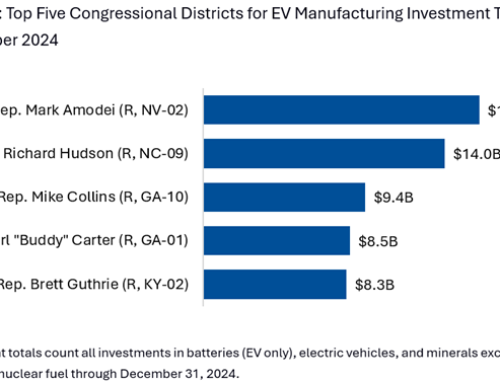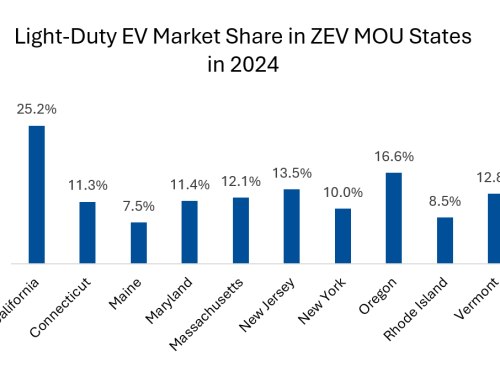
Image Data Source: Environmental Protection Agency
Last week, the Environmental Protection Agency (EPA) awarded a historic $4.3 billion through the Implementation Phase of the Climate Pollution Reduction Grants (CPRG) program. This initiative, authorized by the Inflation Reduction Act (IRA), provides nearly $5 billion in grants to states, local governments, tribes, and territories. The primary goal is to develop and implement comprehensive plans for reducing greenhouse gas emissions and other forms of air pollution. This significant funding move marks a pivotal step in the national effort to combat climate change and improve air quality.
The CPRG program is divided into two phases. The first phase offered $250 million for non-competitive planning grants, allowing recipients to strategize and outline their pollution reduction initiatives. The second phase is focused on implementation and allocates nearly $4.6 billion for competitive grants. This phase is designed to fund the execution of some of the measures included in the plans developed in the initial phase, ensuring that projects receive the necessary financial support to move forward.
In this most recent funding round, twenty-five applicants were selected as recipients. The proposed projects aim to address greenhouse gas pollution across six critical sectors: transportation, electric power, buildings, industry, agriculture and natural and working lands, and waste and materials management. Notably, nearly $1.18 billion of the CPRG funds were earmarked for transportation electrification projects – more than any other sector – reflecting a significant investment in reducing transportation emissions.
The funded transportation projects include a variety of impactful initiatives. These range from installing charging infrastructure for zero-emission freight trucks along some of the nation’s busiest freight traffic corridors to providing incentives for the deployment of thousands of light-duty electric vehicles, electric trucks, electric chargers, locomotives, and electric bicycles. Additionally, measures to reduce up to 3 billion vehicle-miles-traveled (VMT) are also supported, providing a comprehensive approach to tackling transportation emissions.
Among the notable transportation electrification projects is the South Coast Air Quality Management District in California, which received $500 million. This funding will be used to decarbonize the Southern California goods movement corridor by installing over 1,000 medium- and heavy-duty vehicle chargers and deploying 800 medium- and heavy-duty electric vehicles and 18 electric locomotives. This project is expected to create approximately 470 high-quality jobs in California and 4,700 jobs across the nation, with an additional 43,500 new jobs anticipated as the infrastructure reaches full utilization.
The New Jersey Department of Environmental Protection was awarded nearly $250 million to deploy electric vehicle charging infrastructure for commercial zero-emission medium- and heavy-duty vehicles along the Interstate-95 freight corridor from Connecticut to Maryland. This project will develop around 20 freight truck charging sites, featuring a combination of overnight, fast, and ultra-fast charging ports. Additionally, the project will implement a workforce development program to train 400 workers in the construction, operation, and maintenance of heavy-duty vehicle infrastructure, particularly benefiting low-income and disadvantaged community members.
The Oregon Department of Environmental Quality (ODEQ) received nearly $200 million to support a range of transportation and building electrification initiatives. This project aims to install charging infrastructure for both light- and heavy-duty vehicles and offer zero-emission rebates for various vehicle classes through programs like Oregon’s Medium-Heavy-Duty Zero Emission Vehicle Rebate Program. With this funding, ODEQ plans to provide nearly 4,500 electric vehicle rebates to lower-income households, promoting broader access to electric vehicles in Oregon.
These projects underscore the strategic efforts and investments being made to electrify the transportation sector, reduce emissions, and create job opportunities across the nation. A further $300 million will be awarded to Tribes, Tribal consortia, and territories later this summer. Read more on the CPRG program’s selected applicants here.

